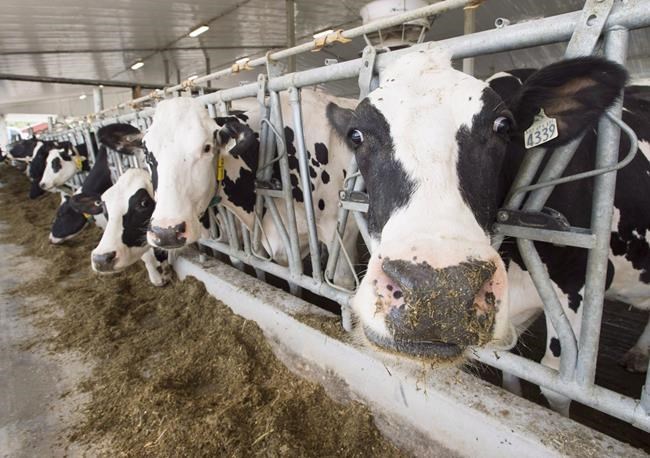WASHINGTON — Two U.S. senators are calling on the Biden administration to get tough with Canada and Mexico over what they describe as the two countries "flouting" their obligations under North America's three-year-old trade agreement.
Democrat Sen. Ron Wyden of Oregon and Republican Sen. Mike Crapo, respectively the chairman and ranking member on the Senate finance committee, laid out their concerns in a letter Thursday to U.S. Trade Representative Katherine Tai.
In it, they describe the U.S.-Mexico-Canada Agreement as an "innovative" tool for raising standards across the continent in areas like fair market access and digital trade.
But America's continental trading partners are still playing fast and loose with the new rules, they write, urging Tai to mark the agreement's anniversary by pressing both Canada and Mexico to get back in line.
"Three years later, it is disappointing that Canada and Mexico have failed to come into full compliance with the agreement — and, in some cases, have flouted their obligations," the senators write.
"USTR must take decisive action to ensure full compliance with the agreement and with dispute settlement panel findings. It is critical to ensure that every chapter of USMCA is fully and timely enforced."
The senators say American dairy producers still aren't getting the Canadian market access they deserve under the terms of the deal because of how Canada is allocating the quotas that determine how much of various dairy products can be imported at lower duty levels.
U.S. trade officials and dairy industry advocates say a large portion of those quotas have been allocated to processors rather than producers, effectively denying U.S. farmers their fair share of the market north of the border.
A panel of arbitrators has already sided with the U.S. on the dairy issue, although Canada treated that finding as a validation of the supply management system that regulates the way dairy products are produced and sold.
"Canada's efforts at compliance fell notably short, leading USTR to bring a followup dispute settlement action," the letter reads. "We strongly support USTR's efforts to resolve this issue once and for all."
The federal government in Ottawa stands by Canada's farmers, workers and businesses, and will continue to do so, International Trade Minister Mary Ng said in a statement late Friday.
"Stability and certainty" are important to all three of those groups, and Canada "will always work to ensure that trade rules are implemented as intended, protecting their livelihoods and setting them up for success at home and abroad," Ng said.
"Let's remember the hard work that farmers do to feed families in Canada and throughout the world. We will always stand with them."
The senators also described Canada's planned digital services tax as "discriminatory" and raised similar concerns about new legislation to regulate online streaming and news.
Both Bill C-11 and Bill C-18, the Online Streaming Act and the Online News Act, have been passed in the House of Commons but are still awaiting a vote in the Senate.
The latter aims to force digital platforms — primarily Meta, which owns Facebook and Instagram, and Google — to compensate news operations for sharing their journalistic content, while the former would require platforms like YouTube and Netflix to foster and provide Canadian content.
The digital services tax, an effort to ensure tech giants pay their fair share of taxes in countries where they earn revenue without a physical presence, would only take effect next year if a new multilateral tax framework doesn't take shape by then.
All three, the senators say, would give preferential treatment to Canadian content and unfairly punish U.S. tech companies either through unilateral tax penalties or by denying them fair access to the market.
The letter comes after meetings this week in San Diego between U.S., Canadian and Mexican deputy trade emissaries, as well as the North American Leaders' Summit in Mexico City earlier this month.
The USMCA, referred to in Canada as CUSMA, has been at the centre of a number of bilateral and trilateral disputes since it went into effect in the summer of 2020.
"The United States has repeatedly urged Mexico and Canada to follow through on their commitments under the (USMCA)," Tai's office said in a statement Friday.
"We continue to seek resolution on these issues, including this week during the USMCA deputies meeting. The USMCA received broad, bipartisan support from Congress and stakeholders and we will continue to implement the agreement."
Canada and Mexico have their own issues with how the U.S. is interpreting the deal, which was signed in 2018 after protracted trilateral efforts to replace NAFTA.
As the Mexico City summit wrapped up, a dispute panel ruled against the U.S. over how it interprets the rules that determine the origin of core automotive components.
It remains unclear whether the U.S. plans to comply with that decision.
This report by The Canadian Press was first published Jan. 27, 2023.
James McCarten, The Canadian Press



